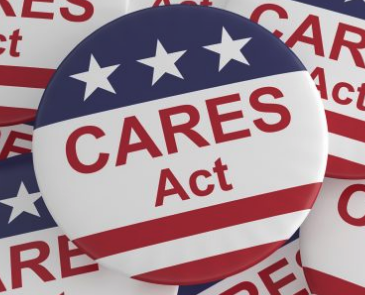
This article was taken from corporate accountant Julie Young at Simplified Accounting. She has put together a very nice summary piece about the Cares Act and how it relates to our clients.
Reach out to us if you have any questions about how this applies to your personal situation. We are here to help.
The IRS will be making millions of ‘‘economic impact payments’’ (also called ‘‘recovery rebates’’ or “stimulus checks”) in the coming months to help families during this time of economic uncertainty related to the COVID-19 crisis. Here’s what you need to know!
Amount of payment. IRS will soon begin making payments of up to $1,200 to eligible taxpayers or up to $2,400 to married couples filing joint returns. Parents will get an additional $500 for each dependent child under age 17. Thus, the payment for a married couple with two children under 17 will be $3,400.
Who is eligible. U.S. citizens and residents are eligible for a full payment if their adjusted gross income (AGI) is under $75,000 (singles or marrieds filing separately), $122,500 (heads of household), and $150,000 (joint filers). The individual must not be the dependent of another taxpayer and must have a social security number that authorizes employment in the U.S.
Phaseout based on income. For individuals whose AGI exceeds the above thresholds, the payment amount is phased out at the rate of $5 for each $100 of income. Thus, the payment is completely phased out for single filers with AGI over $99,000 and for joint filers with no children with AGI over $198,000. For a married couple with two children, the payment will be completely phased out if their AGI exceeds $218,000.
How to get a payment. The vast majority of people won’t have to do anything in order to get an economic impact payment. IRS will calculate and send the payment automatically to those who are eligible.
If you’ve already filed your 2019 tax return, IRS will use the AGI and dependents from that return to calculate the payment amount. If you haven’t filed for 2019 yet, information from your 2018 return will be used.
IRS will deposit the payment directly into the bank account reflected on the return. IRS plans to develop a web-based portal for individuals to provide banking information to IRS, so that payments can be received as a direct deposit rather than by check sent in the mail.
People who are not otherwise required to file a tax return will need to file a simple return to receive an economic impact payment. IRS will soon provide instructions on how to do this.
Payments nontaxable. Economic impact payments will not be included in the recipient’s income for tax purposes.
Additionally, we want to highlight two tax-related provisions in the Coronavirus Aid, Relief, and Economic Security (CARES) Act, signed into law on March 27, 2020.
- Waiver of 10% early distribution penalty. The additional 10% tax on early distributions from IRAs and defined contribution plans (such as 401(k) plans) is waived for distributions made between January 1 and December 31, 2020 by a person who (or whose family) is infected with the Coronavirus or who is economically harmed by the Coronavirus (a qualified individual). Penalty-free distributions are limited to $100,000, and may, subject to guidelines, be re-contributed to the plan or IRA. Income arising from the distributions is spread out over three years unless the employee elects to turn down the spread out. Employers may amend defined contribution plans to provide for these distributions. Additionally, defined contribution plans are permitted additional flexibility in the amount and repayment terms of loans to employees who are qualified individuals.
- Waiver of required distribution rules. Required minimum distributions that otherwise would have to be made in 2020 from defined contribution plans (such as 401(k) plans) and IRAs are waived. This includes distributions that would have been required by April 1, 2020, due to the account owner’s having turned age 70 1/2 in 2019.
IRS information site. Ongoing information on the IRS and tax legislation response to COVID- 19 can be found ,HERE.
Evergreen Wealth Management, LLC (EWM) is a registered investment adviser. Information presented is for educational purposes only and does not intend to make an offer or solicitation for the sale or purchase of any specific securities, investments, or investment strategies. Investments involve risk and unless otherwise stated, are not guaranteed. Be sure to first consult with a qualified financial adviser and/or tax professional before implementing any strategy discussed herein. Past performance is not indicative of future performance.
